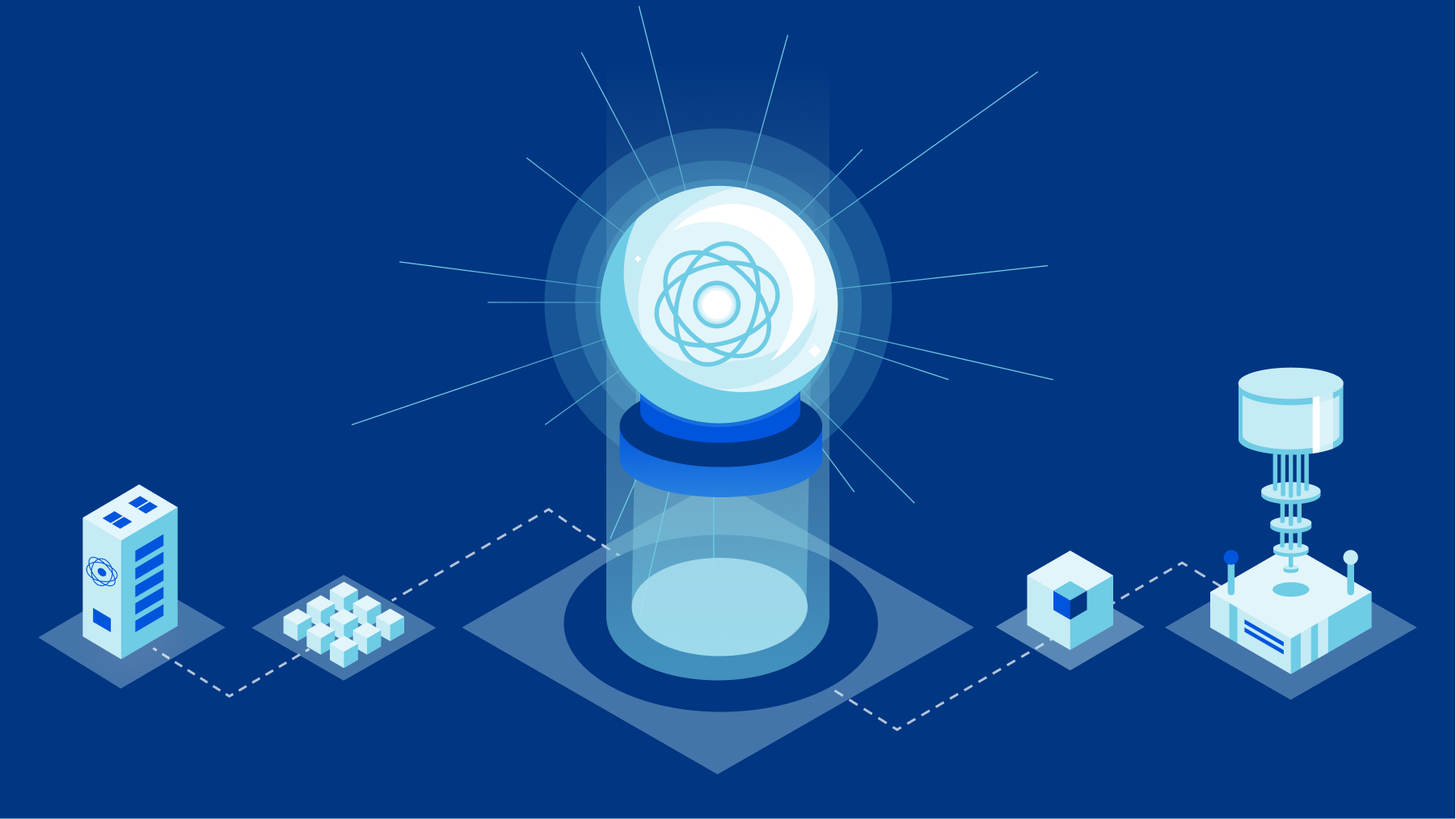Why Data Is The Lifeblood Of Modern Organizations

AI – or machine learning, to be more specific – is powered by data (by which we
generally mean information). This is because it uses information to “learn” how
to make decisions. The more information it receives - such as, for example, road
traffic conditions, in the case of a self-driving car – the better it can learn
to do whatever it is supposed to do. Simply by watching examples of what happens
when a vehicle travels on the road in different situations (environment, time of
day, etc.), it gets better at understanding the decisions that have to be made
to achieve its objective – traveling from A to B without hitting anything or
hurting anyone. Likewise, the usefulness of IoT is down to its ability to
transmit data between disparate devices that can then be used to make better
decisions. When all of the machinery on a connected factory floor, for example,
is talking to every other piece of machinery, it's possible to spot where
performance issues are creating inefficiencies, as well as predict where
malfunctions and breakdowns are likely to impair performance of the
manufacturing operation as a whole.
How AI and Machine Learning will revolutionize the future of eCommerce

One of the numerous advantages of machine learning is the automation of many
processes. Personalization is a prime illustration of this. The entire
marketplace’s look may be altered using machine learning models for eCommerce to
suit a specific buyer. AI personalization in eCommerce is primarily driven by
user involvement, which improves the usability and appeal of the consumer
experience (with more conversions and sales). Marketplaces want consumers to
stay on their sites longer and make more purchases. To make it happen, they modify various website features to meet the specific user’s demands. ... The
area of price adjustment is where you may see the full extent of machine
learning’s advantages. eCommerce is one of those sectors where competition is
quite severe, particularly in specialized consumer markets like hardware or
beauty items—because of this, obtaining as many benefits as possible is
essential if you want to draw in and keep clients. Price is one of the key
motivators for 47% of eCommerce shoppers, according to a BigCommerce survey.
Hertzbleed explained

The first thing to note is that Hertzbleed is a new type of side-channel attack
that relies on changes in CPU frequency. Hertzbleed is a real, and practical,
threat to the security of cryptographic software. ... In short, the Hertzbleed
attack shows that, under certain circumstances, dynamic voltage and frequency
scaling (DVFS), a power management scheme of modern x86 processors, depends on
the data being processed. This means that on modern processors, the same program
can run at different CPU frequencies (and therefore take different wall-clock
times). For example, we expect that a CPU takes the same amount of time to
perform the following two operations because it uses the same algorithm for
both. ... When running sustained workloads, CPU overall performance is capped by
TDP. Under modern DVFS, it maximizes its performance by oscillating between
multiple P-states. At the same time, the CPU power consumption is
data-dependent. Inevitably, workloads with different power consumption will lead
to different CPU P-state distribution.
Orlando will test if a physical city can be the center of the metaverse
The Orlando Economic Partnership (the region’s economic development group) is
working with Unity to create a digital twin of the 800-square-mile metro area
that will use new 3D technology to map out scenarios on everything from
infrastructure to real estate to talent availability and more. The Unity
rendering will capture 3D scans of exteriors and interiors of buildings, and it
will help with the analysis of power grid expansions, traffic flow, stoplight
timing, and climate change. The Orlando folks also participated in last week’s
ringing of the Nasdaq bell in the metaverse by futurist Cathy Hackl, chief
metaverse officer of Journey. Hackl is working with the city to help cement its
reputation in the metaverse, and the bell ringing happened in both the physical
stock exchange building and the metaverse. “I see the area from South Florida,
which is focused on crypto, all the way up to Orlando, which is the simulation
capital of the world, becoming one of the metaverse and Web3 innovation
corridors to keep your eye on,” Hackl said.
Business AI solutions for beginners: What is vertical intelligence?

In the modern paradigm, one of your company’s greatest assets is the data
generated by your employees, clients, and customers. And, sadly, most businesses
are leaving money on the table by simply storing that data away somewhere to
collect digital dust. The problem: How do you audit your company’s entire data
ecosystem, deploy models to identify and infer actionable items, and turn those
insights into positive business outcomes? The solution: vertical intelligence.
Unfortunately, “vertical intelligence” is a buzzword. If you try to Google it,
you’ll just get pages and pages of companies that specialize in it explaining
why it’s important. Nobody really tells you what it is in the context of modern
AI solutions. ... Vertical intelligence is the combination of human expertise
and big data analytics applied with surgical precision and timing. As
NowVertical Group’s COO, Sasha Grujicic, told Neural, we’re coming out of a
once-in-a-century pandemic. And, unlike most industries, the world of AI had a
positive surge during the COVID lockdowns.
One Day, AI Will Seem as Human as Anyone. What Then?
Even if no skills or capacities separate humans from artificial intelligence,
there is still a reason and a means to fight the assessment that machines are
people. If you attribute the same moral weight to something that can be
trivially and easily digitally replicated as you do to an ape that takes decades
to grow, you break everything—society, all ethics, all our values. If you could
really pull off this machine moral status (and not just, say, inconvenience the
proletariat a little), you could cause the collapse, for example, of our
capacity to self-govern. Democracy means nothing if you can buy and sell more
citizens than there are humans, and if AI programs were citizens, we so easily
could. So how do we break the mystic hold of seemingly sentient conversations?
By exposing how the system works. This is a process both “AI ethicists” and
ordinary software “devops” (development and operations) call “transparency.”
What if we all had the capacity to “lift the lid,” to change the way an AI
program responds? Google seems to be striving to find the right set of filters
and internal guardrails to make something more and more capable of human-like
conversation.
LaMDA Is An ‘AI Baby’ That Will Outrun Its Parent Google Soon

Compared to other chatbot conversations, LaMDA shows streaks of both consistency
and randomness within a few lines of conversation. It maintains the logical
connection even when the subject is changed without being prompted by a relevant
question. ... That trait apart, the one other significant differentiating factor
seems to be how it can reach out to external sources of information to achieve
“factual groundedness”. A research paper published by Google with Cornell
University, mentions that the model has been trained using around 1.56T words of
public data and web text. Google very specifically mentions safety, in terms of
the model’s consistency with a set of human values, bypassing harmful
suggestions and resorting to unfair bias, and enhancing the model safety using a
LaMDA classifier fine-tuned with a small amount of crowd worker-annotated data,
which again leaves ample scope for ample debate and improvement as one
crowdworker might think he is talking to LaMDA chatbot but he might be talking
to another crowdworker.
How to Use Span in C# to Improve Application Performance
Using Span<> leads to performance increases because they are always
allocated on the stack. Since garbage collection does not have to suspend
execution to clean up objects with no references on the heap as often the
application runs faster. Pausing an application to collect garbage is always an
expensive operation and should be avoided if possible. Span<> operations
can be as efficient as operations on arrays. Indexing into a span does not
require computation to determine the memory address to index to. Another
implementation of a Span in C# is ReadOnlySpan<>. It is a class exactly
like Span<> other than that its indexer returns a readonly ref T, not a
ref T. This allows us to use ReadOnlySpan<> to represent immutable data
types such as String. Spans can use other value types such as int, byte, ref
structs, bool, and enum. Spans can not use types like object, dynamic, or
interfaces. ... Spans are not appropriate in all situations. Because we are
allocating memory on the stack using spans, we must remember that there is less
stack memory than heap memory.
The making and value of metaverse worlds

Technology, media, and telecom companies, for instance, benefit directly by
providing technological enablers, such as 5G, next-generation Wi-Fi or broadband
networks, and new operating systems, app stores, and platforms to foster more
content creation. Meanwhile, AR and VR tools are being actively explored and
used in industries ranging from healthcare to industrial goods. Companies should
start by familiarising their organisations with the potential impact of the
metaverse. To start with, it’s important to do an assessment of how your
business may be positively or negatively affected by the three biggest trends:
the rise of m-worlds; improvements in AR, VR, and MR; and the expanding use of
Web3 assets enabled by blockchain. Companies can then choose areas of focus
in the metaverse and potential use cases for their own efforts. Finally, they
can decide whether to become part of building this new infrastructure; monetise
content and virtual assets; create B2B or B2C content, or even inward-facing
experiences such as customer showrooms, virtual conferences, and remote
collaboration solutions; or attract relevant audiences, both existing customers
and prospects of interest.
CFOs and Automation: Battling Inflation, Increasing Employee Productivity

The CFO must also unlock the investment they've made in staff by providing them
with tools that automate mundane, low-value work. “CFOs are fully aware that
inflation drives up the cost of hiring and maintaining talent,” explains Karlo
Bustos, vice president of professional services for Board International. “They
must provide an environment where things aren't hard to do, in a very
manual-based function such as invoicing collection activities, building out
financial plans, and making financial models.” For CFOs to mitigate the expense
of hiring talent and the manual nature of many tasks, they need to provide an
environment of automation, collaboration, easily shared data, and enabling
technologies. “Being proactive in automation is understanding the business,” he
says. “CFOs are more inclined to invest in automation technology to deliver
value, so that they can compress some of the inflationary pressures they have on
their internal cost structure.” That perspective was shared by Wayne Slater,
director of product marketing for Prophix, a performance management software
provider.
Quote for the day:
"Leadership is about change... The best
way to get people to venture into unknown terrain is to make it desirable by
taking them there in their imaginations." -- Noel Tichy
No comments:
Post a Comment